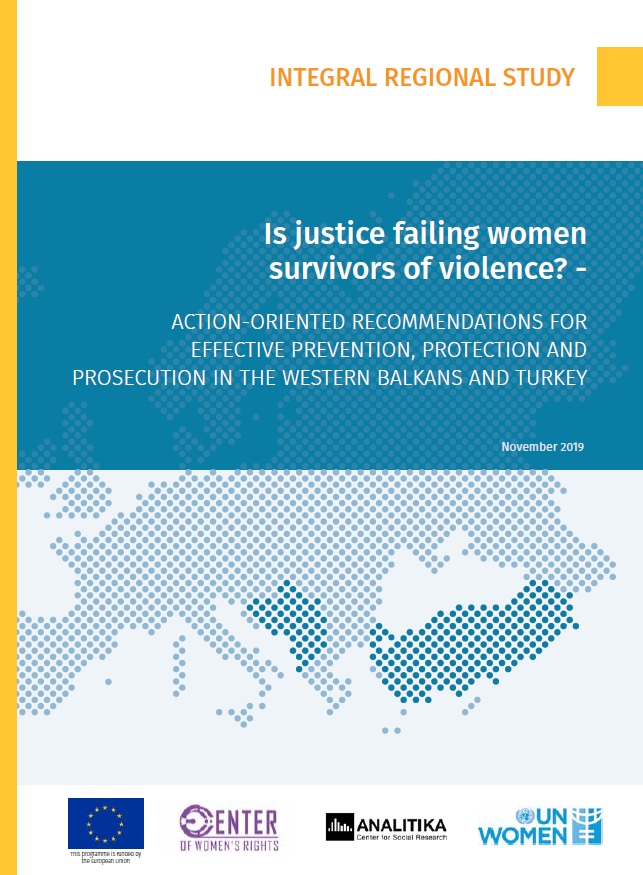
Integral Regional Study. Is justice failing women survivors of violence? Action-oriented recommendations for effective prevention, protection and prosecution in the Western Balkans and Turkey.

This study examines the gaps and failures in the response to violence against women in Albania, Bosnia and Herzegovina, Kosovo*, North Macedonia, Montenegro, Serbia, and Turkey, as seen from the perspective of actual cases reported and processed within the legal and institutional system of protection.
The main purpose of this regional research is to lay out concrete recommendations for action to improve the protection system following the identification and analysis of key shortcomings through the in-depth study of 14 cases in the above mentioned countries.
One of the conclusions of the study is that, despite the fact that all countries have, to a certain level, improved the status of women and promoted gender equality, adopted specific legislation on domestic violence legislation and ratified conventions dealing with all forms of violence, significant gaps and limitations in the protection system of survivors remain. The study calls for a true interdisciplinary approach that would go beyond the strict mechanisms of protection and extend to different fields such as antidiscrimination and labour relations, as well to continuous education of professionals and advocacy for genuine commitment of decision-makers to the realization of international standards in this area.
This regional study was produced by the Center of Women’s Rights (Bosnia and Herzegovina) under the framework of the UN Women regional programme on ending violence against women in the Western Balkans and Turkey “Implementing Norms, Changing Minds,” funded by the European Union.